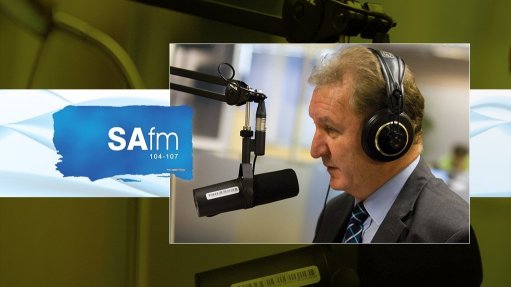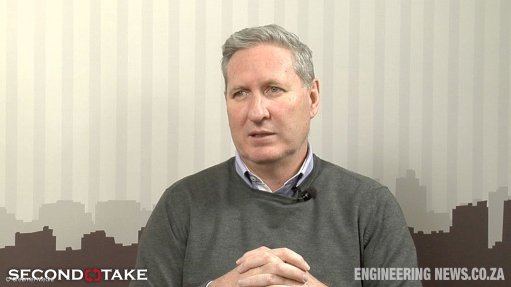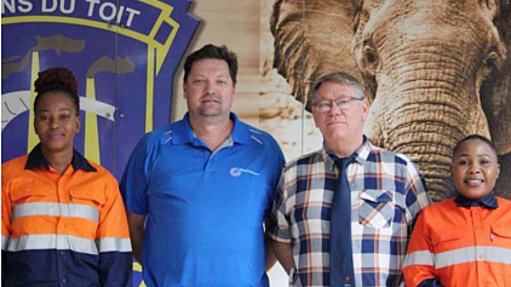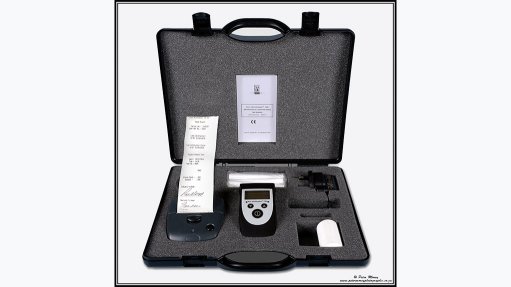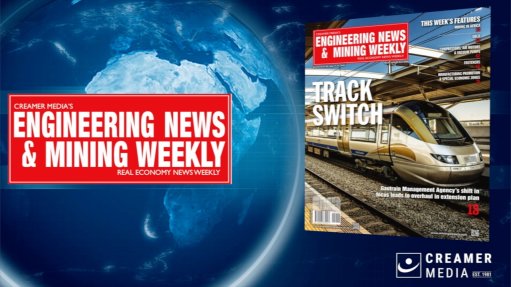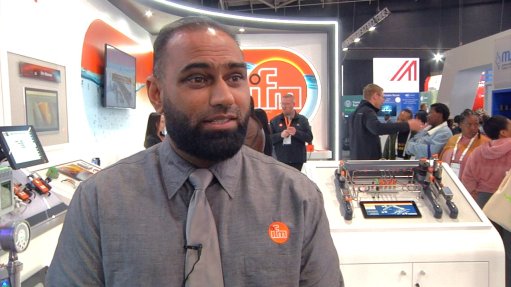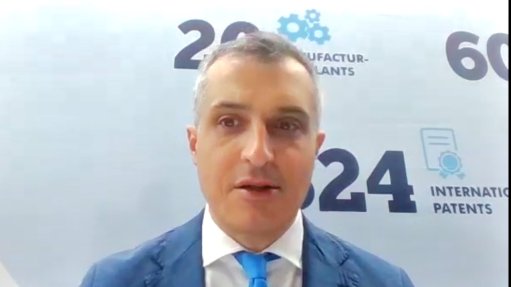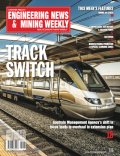Young South African scientists showcase international collaboration
Three internationally ranked South African scientists this week spoke about their roles in sustainable development globally and locally in a seminar hosted by the Academy of Sciences of South Africa (ASSAf) as part of Youth Month.
University of Toronto and Sunnybrook Research Institute biomedical researcher Dr Lerato Mpye spoke about her role in developing new therapeutic medicines for infectious diseases and contributing to public policies to ensure the advances benefit as many people as possible.
University of Vienna post-doctoral research fellow Dr Florence Lehutso detailed her research into the impacts of pollutants on aquatic environments. She is currently developing standardised methods and processes to test for new pollutants in water for the Organisation for Economic Cooperation and Development.
Further, University of KwaZulu-Natal paediatric and infectious diseases researcher Dr Gabriela Cromhout highlighted the work her team was doing, alongside researchers from Oxford University, on human immunodeficiency virus (HIV) in children, with the aim to improve treatments and outcomes for children.
The webinar was aimed at highlighting the role young South African scientists play in terms of sustainable development, not only in South Africa, but globally. Each of the scientists has worked or collaborated with universities and research organisations internationally.
Mpye explained that she was motivated to do research internationally as a way of challenging herself and to grow as a scientist.
"I felt that I was in a comfort zone. I wanted to get out of my comfort zone and see how they did research in other countries.
"I realised that we do have world-class science teaching and training that is globally competitive. I did not have any issues when I worked in a laboratory, but I did need to learn new skills, specifically bioinformatics in addition to my biochemistry and molecular biology skills, as part of my new work," she said.
Lehutso gained international exposure while doing her Master's and spent two months at the University of Stockholm, in Sweden. She completed her PhD in South Africa. Lehutso said she had felt unchallenged in her position and, after seeing an international opportunity for which she had the skills and expertise, she completed three interviews to take the opportunity at the University of Vienna.
Further, Cromhout is a medical doctor and, following five years of clinical work, she took the opportunity to do her Master's degree at the London School of Hygiene and Tropical Medicine.
"I felt restless and took the opportunity. I was fortunate enough to get a scholarship that covered tuition and living expenses. It was transformative for me to be able to experience other parts of medicine and I garnered a passion for research and global health, which I believe was underlying all along," she said.
Cromhout's work focuses on HIV in children, including those affected by mother to child transmission. Also, as part of the Orchid study, she and her team are investigating those living with tuberculosis (TB) and HIV, and the potential impact of TB medication on antiretroviral drug levels, as well as the correct dosages by weight band for TB medications in children.
"Children are not small adults. Their bodies behave differently. We need to make sure that the dosages combined with medications are correct for the weight bands in children, and what changes should be made to dosing guidelines internationally," she said.
It is important to do HIV cure and treatment research among children. Their systems work differently to adult systems and they are a vulnerable population. However, owing to some unique aspects of their system, there could be a unique opportunity to develop a cure, she added.
Mpye said she had reached out to another academic at the University of Toronto while completing postdoctoral research and was invited to join his team. The initial proposal did not secure a grant, but another opportunity arose a few years later, which secured grant funding.
"I am trained as a biochemist. I obtained my Master's in protein biochemistry and my PhD in biomedical sciences. I had to learn to do bioinformatics, and I got the support and training I needed. However, I have a passion for lab work, hence my most recent position at the Sunnybrook Research Institute," she said.
Each of the scientists also reflected on the role that mentors played in their careers, with Mpye noting that she received support from the Professor who had invited her to join him to pursue the career she wanted to, leading to her returning to laboratory work.
Lehutso said that, especially during the early stages and in the international space, mentors were instrumental, not only for academic support, but also support in navigating new countries and new challenges.
She added that academics should make the effort to keep in touch with their mentors and be proactive in maintaining their relationships with their mentors.
Cromhout also spoke about the support she had received while working in another country, and added that the network of mentors and peers she had built up continued to benefit her work.
Meanwhile, Mpye was actively mentoring younger scientists, as she felt she had to give back in the manner that had encouraged her to complete her PhD.
Further, she averred that making international opportunities available was important, especially for scientists who wanted to gain international experience.
She highlighted the support provided by ASSAf, the Department of Science and Innovation and the National Research Foundation for students to undertake international research and collaboration and said more international opportunities must be made available for curious minds.
Comments
Announcements
What's On
Subscribe to improve your user experience...
Option 1 (equivalent of R125 a month):
Receive a weekly copy of Creamer Media's Engineering News & Mining Weekly magazine
(print copy for those in South Africa and e-magazine for those outside of South Africa)
Receive daily email newsletters
Access to full search results
Access archive of magazine back copies
Access to Projects in Progress
Access to ONE Research Report of your choice in PDF format
Option 2 (equivalent of R375 a month):
All benefits from Option 1
PLUS
Access to Creamer Media's Research Channel Africa for ALL Research Reports, in PDF format, on various industrial and mining sectors
including Electricity; Water; Energy Transition; Hydrogen; Roads, Rail and Ports; Coal; Gold; Platinum; Battery Metals; etc.
Already a subscriber?
Forgotten your password?
Receive weekly copy of Creamer Media's Engineering News & Mining Weekly magazine (print copy for those in South Africa and e-magazine for those outside of South Africa)
➕
Recieve daily email newsletters
➕
Access to full search results
➕
Access archive of magazine back copies
➕
Access to Projects in Progress
➕
Access to ONE Research Report of your choice in PDF format
RESEARCH CHANNEL AFRICA
R4500 (equivalent of R375 a month)
SUBSCRIBEAll benefits from Option 1
➕
Access to Creamer Media's Research Channel Africa for ALL Research Reports on various industrial and mining sectors, in PDF format, including on:
Electricity
➕
Water
➕
Energy Transition
➕
Hydrogen
➕
Roads, Rail and Ports
➕
Coal
➕
Gold
➕
Platinum
➕
Battery Metals
➕
etc.
Receive all benefits from Option 1 or Option 2 delivered to numerous people at your company
➕
Multiple User names and Passwords for simultaneous log-ins
➕
Intranet integration access to all in your organisation








